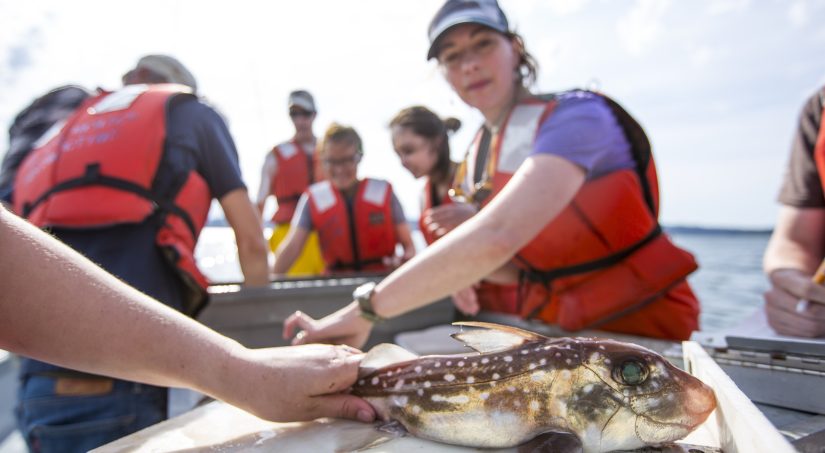Aquatic Conservation and Ecology (ACE) Bachelor of Science

Aquatic Conservation and Ecology (ACE) Degree Overview
The Aquatic Conservation and Ecology (ACE) degree, coming to UW in Autumn 2025, is about the ecology of aquatic organisms, the rivers, lakes, and oceans in which they live, and how we conserve them for the benefit of people and the planet. This degree integrates the disciplines of ecology, evolution, and quantitative sciences and applies these principles to contemporary conservation and natural resource management issues.
ACE is an open major, which means that students currently registered at UW can declare this major at any time as long as they have a 2.0 cumulative grade point average. It is also transfer-friendly, allows for over 50 free electives, and can easily be combined with minors and double degrees. Learn more about the ACE Major requirements and scholarship opportunities available.
Graduates of the ACE major are uniquely qualified for careers in universities and other educational settings, management agencies at the local to international levels, environmental consulting, and non-profit organizations.
Learn by doing
The ACE degree equips students with knowledge and skills for lifelong learning about the ecology and evolution of aquatic species and ecosystems, and how we sustain them for generations to come.
Central to the degree is an integrative approach to developing communication, quantitative reasoning, and data science skills that careers in this field increasingly demand.
Learning outcomes
- Understand the ecological processes that influence aquatic biodiversity, and apply that knowledge to well-known ecosystems and species
- Implement the tools and methods used in ecology, conservation, and resource management
- Diagnose conservation and natural resource outcomes based on the inter-relations of natural, social and governance systems
- Apply mathematical and data science methods to the study of aquatic ecology and conservation science
Recommended Preparation
First Year Students: Composition, calculus, chemistry, biology, FISH 200 or FISH 250.
Second Year Students: Statistics, ACE intro coursework, Communicating Science coursework, College of Environment’s General Education requirements.
For More Information:
Students will be able to declare the new ACE major beginning in Autumn 2025. In the meantime, if you would like to learn more about the major, contact our undergraduate adviser: